History
The Baga people live amid the southern swampy lands of the Guinea Atlantic coastline. According to oral tradition, they originally lived along the interior highlands but were driven westward by their neighbors. The name ‘Baga’ is believed to have come from the phrase ‘bae raka’, meaning “people of the seaside”.
Once the Baga settled, they fashioned an egalitarian society, meaning they lack political leaders or hierarchies. Instead, they are organized into small groups and make decisions collectively, letting everyone’s voice be heard.
Beginning in the 16th century, trade routes began sprawling through Baga territory. The people began cultivating rice, kola nut and salt to supply the Portuguese traders. With a boom in economic growth, the area became a permanent residence for many new settlers. Some of these newcomers began marrying the daughters of Baga chiefs, becoming political leaders and eventually establishing dynasties.
Religion
Later, in the 19th century, the Baga fell under French colonization, along with all of Guinea. Within a century, they gained back their independence, only to fall under an Islamic-Marxist Government. The state forced Islam as their formal religion, outlawing all non-Muslim religious practices and in the process, destroying all Baga traditional religious icons. In 1984, after the death of their leader, Sekou Toure, the Baga slowly began reestablishing their traditional culture and animist nature.
Art from this Tribe
-
Sale!
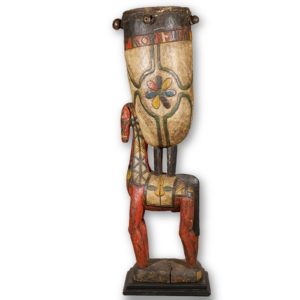
Baga Figural Zoomorphic African Drum 58″ – Guinea*
Original price was: $1,900.00.$475.00Current price is: $475.00.View More -
Sale!
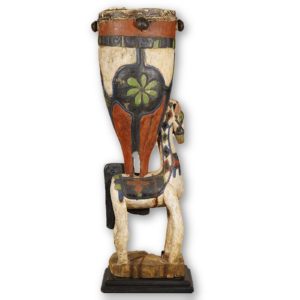
Baga Figural African Drum 55.5″ – Guinea*
Original price was: $1,900.00.$475.00Current price is: $475.00.View More -
Sale!
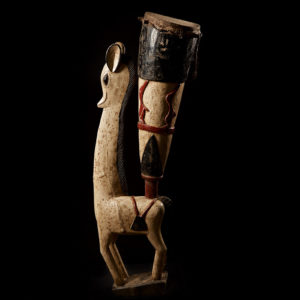
Mammalian Figural Baga Drum 46″ – Guinea – African Art*
Original price was: $1,180.00.$295.00Current price is: $295.00.View More -
Sale!
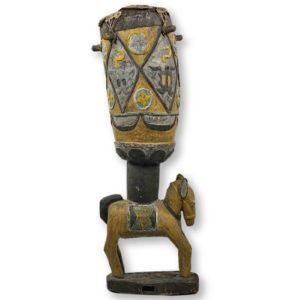
Grand Zoomorphic Baga Drum 60″ – Guinea – African Art*
Original price was: $1,500.00.$375.00Current price is: $375.00.View More -
Sale!
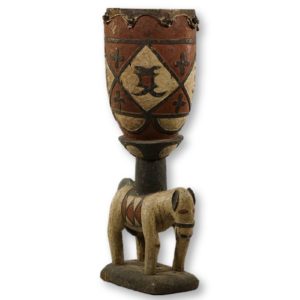
Sizable Zoomorphic Baga Drum 54″ – Guinea – African Art*
Original price was: $1,500.00.$375.00Current price is: $375.00.View More

